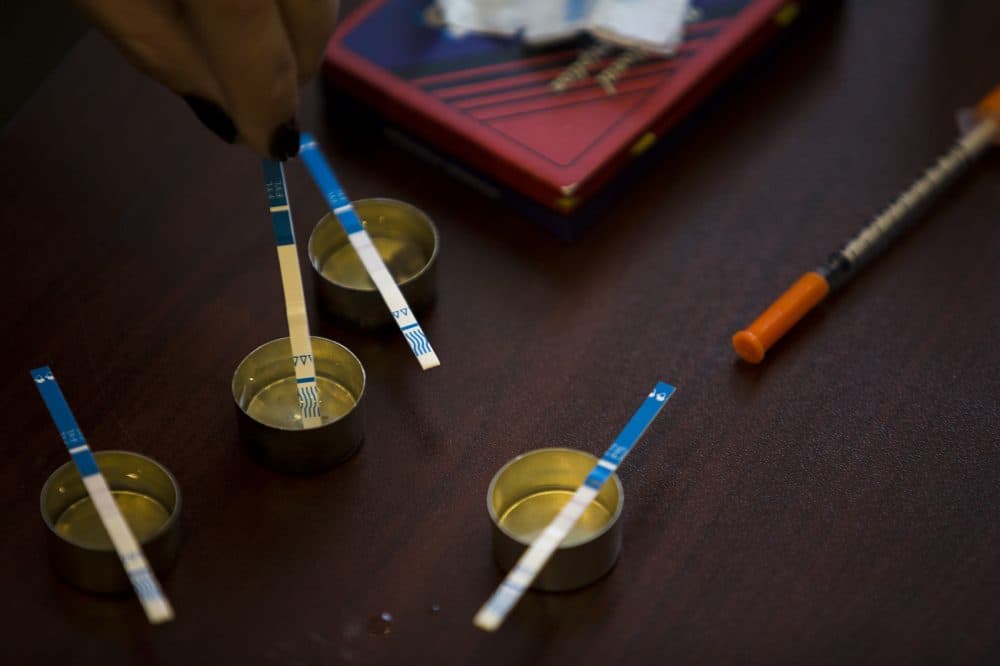Advertisement
Study Finds Simple Test Strips Are Effective In Testing For Fentanyl

The low-tech version of tools that test for the powerful opioid fentanyl may be the most effective.
A study from Johns Hopkins University's Bloomberg School of Public Health and Brown University found that the off-label use of a fentanyl testing strip could accurately detect the presence of the opioid, which has been blamed for most of the overdose deaths in Massachusetts.
The test strip, which is similar to urine or pregnancy test strips, was more accurate than two other drug testing devices that are often used by law enforcement.
Dr. Susan Sherman, a professor at the Bloomberg school, says the strips, which cost about $1 each and are already being used by some harm reduction workers, were designed to test for fentanyl in urine.
"This is actually being done in some syringe exchanges in Massachusetts and other states, and people didn't know how valid they were," Sherman said. "But this is a study that shows they are highly valid and reliable."
Sherman says the strips, made by the Canadian company BTNX, also detected some analogs of fentanyl, although it's not clear if the strips would detect all the types of fentanyl that might come from illicit drug labs.
"Based on our evidence of 104 positive and 104 negative samples in these two labs, we found there was a lot of information provided," Sherman said. "A diagnostic test of any sort doesn't give you 100 percent. ... I would say I'm pretty confident and it's more information people have about the product before they use it."
The researchers also interviewed 335 people who use drugs in Boston, Baltimore and Providence. Seventy percent of the respondents said that knowing that their drugs contained fentanyl would lead them to modify their behavior. Almost half — 42 percent — said they had witnessed someone die of an overdose.
"If you think about the degree of trauma that causes in a community, it's like a war," Sherman said. "The fact that people might be able to have some product safety and reduce the potential of people dying or dying themselves, that's a really powerful thing."
The study recommends that health care and harm reduction workers use the strips on illicit drugs.
But that's something that -- in Massachusetts anyway-- could lead to arrest, because being in the presence of heroin or some other drugs is considered a crime.
Sherman says she's hopeful there will be more dialogue between public health and public safety officials to work out a way to allow health workers to use the strips without risking arrest.
